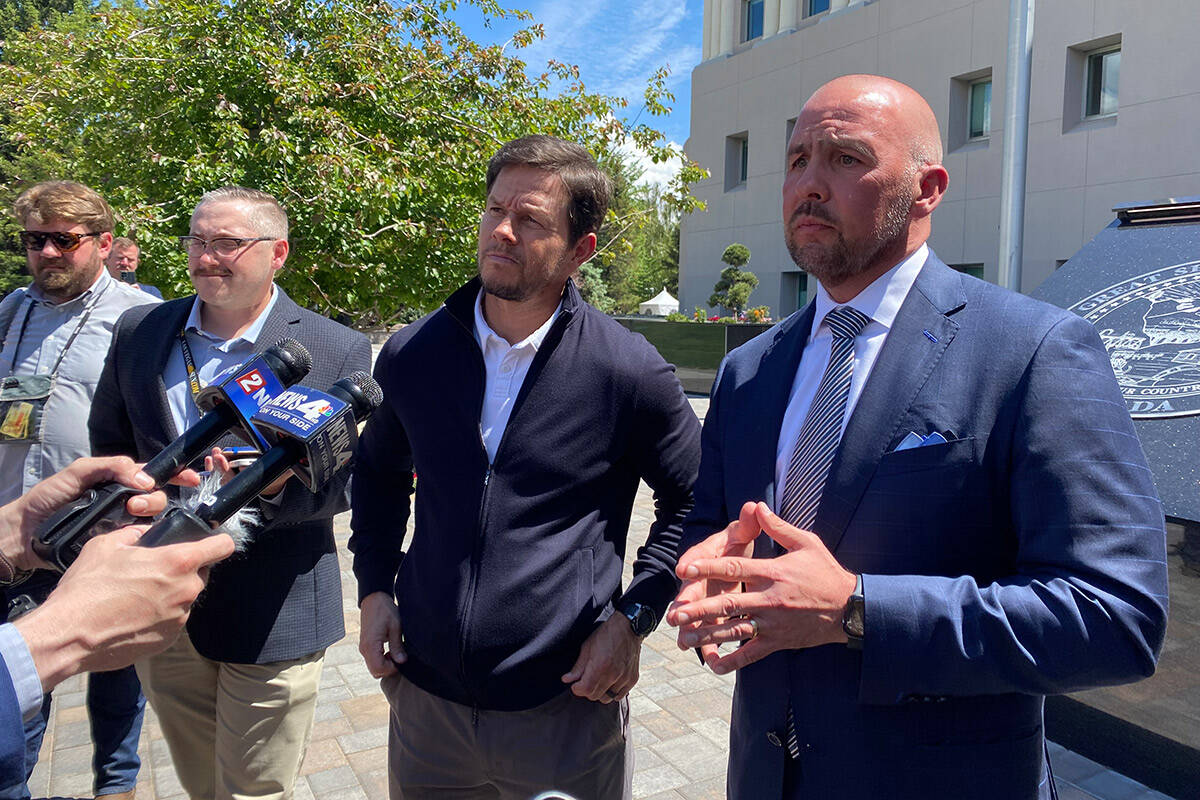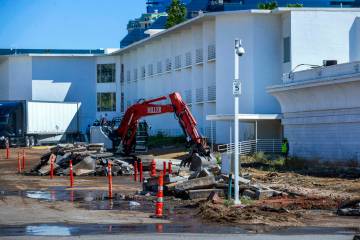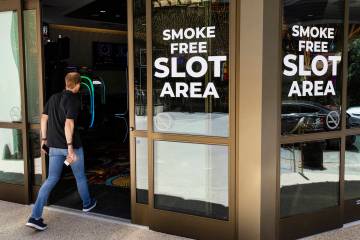Film tax credit backers hopeful, despite setback in Legislature
A proposal to bring the film industry to Southern Nevada through a massive tax-credit plan failed in the Nevada Legislature, but stakeholders remain hopeful that the idea will stick around.
Film industry lobbyists and union supporters pushed the Legislature to consider Senate Bill 496, which would have made $190 million in film infrastructure tax credits available annually for the next 20 years.
Birtcher Development, Sony Pictures Entertainment and the Howard Hughes Corp. spearheaded the effort, vowing to build two separate film production campuses in the Las Vegas area as part of the bill’s deal. Newport Beach, California-based Birtcher Development proposed managing and partially financing the Las Vegas Media Campus Project in the southwest valley, while Sony and Howard Hughes proposed a campus in Summerlin.
The effort was pitched as a way to diversify Southern Nevada’s economy based on existing talent pools. Entertainers and production staff are already attracted to the “Entertainment Capital of the World,” said Brandy Birtcher, CEO of Birtcher Development, and the bill would have established the infrastructure and an educational and workforce development pipeline.
“What we’re doing is we’re bringing from the film and television production capital of the world, Southern California, just a few hours east into Southern Nevada,” Birtcher said. “It’s going to be a long-term commitment to grow future generations.”
Despite its potentially multibillion-dollar price tag, the bill received support from several groups and high-profile individuals, including the AFL-CIO, the Raiders, the cities of Las Vegas and Henderson, the Nevada System of Higher Education and actors Jeremy Renner and Mark Wahlberg, among others.
But the bill never made it to a vote. That’s something that Birtcher attributes to a shortened timeline for getting it passed. The bill was introduced on May 11, leaving it just a few weeks of discussion before the session’s end on June 5.
“There were some very important things that the Legislature needed to deal with, and obviously, there’s a couple of things still remaining,” he said, referring to the Legislature’s special session on June 6 that addressed a capital improvement budget and the special session regarding the Oakland Athletics’ proposal to build a baseball stadium on the Strip with up to $380 million in public financing.
Assemblyman C.H. Miller, D-North Las Vegas, a co-sponsor of the legislation, said he believed the bill didn’t have time to get proper attention because lawmakers had to address the budget before considering tax credits.
“I think it just got lost in the process,” he said.
Nevada leaders have not been shy in using tax incentives to diversify the state’s economy in the past. In March, the Governor’s Office of Economic Development approved more than $330 million in tax incentives for electric carmaker Tesla’s new semi-truck and battery manufacturing facility in Northern Nevada — not even a decade after it received $1.3 billion in incentives to build its first Gigafactory.
Tesla’s 2014 tax abatement was the largest in state history and required Tesla to meet certain employment and capital investment requirements. (Some funds from the state’s movie-production tax abatement program at the time were reallocated to the Tesla tax-break package.) It was required to invest at least $3.5 billion into the Gigafactory, but the state and company say Tesla has invested roughly $6.2 billion so far.
The studio builders say they are not deterred.
David O’Reilly, CEO of the Howard Hughes Corp., said in a statement that the company remains “fully engaged” in conversations with the state on how to diversify the economy through a local film industry. Greg Ferraro, a lobbyist working with Birtcher Productions, said he hopes this could come up in a special session before the next legislative body convenes in 2025.
“I think there’s a lot of interest to keep this on the front burner, and to continue to develop more support that may result in taking action on this long before the next session,” Ferraro said.
But it’s unclear if that will happen. Special sessions can be called only by the governor or by a petition signed by two-thirds of the Legislature. A spokesperson for Gov. Joe Lombardo declined to comment on whether he would call a session for the film tax credit bill.
McKenna Ross is a corps member with Report for America, a national service program that places journalists into local newsrooms. Contact her at mross@reviewjournal.com. Follow @mckenna_ross_ on Twitter.





























